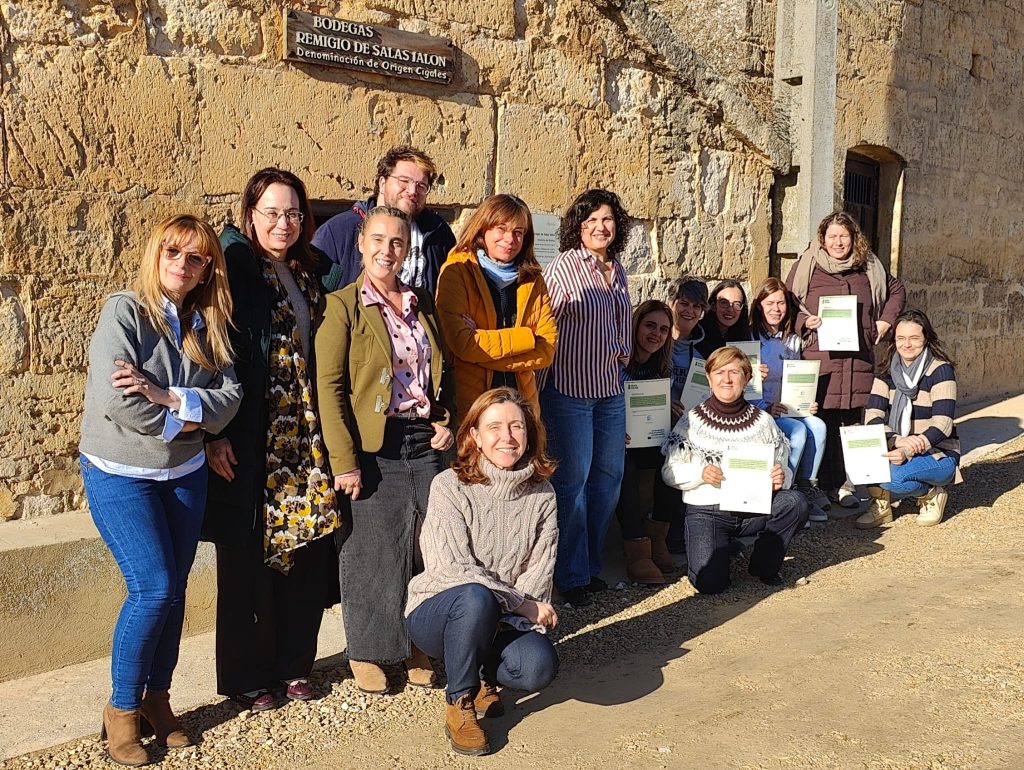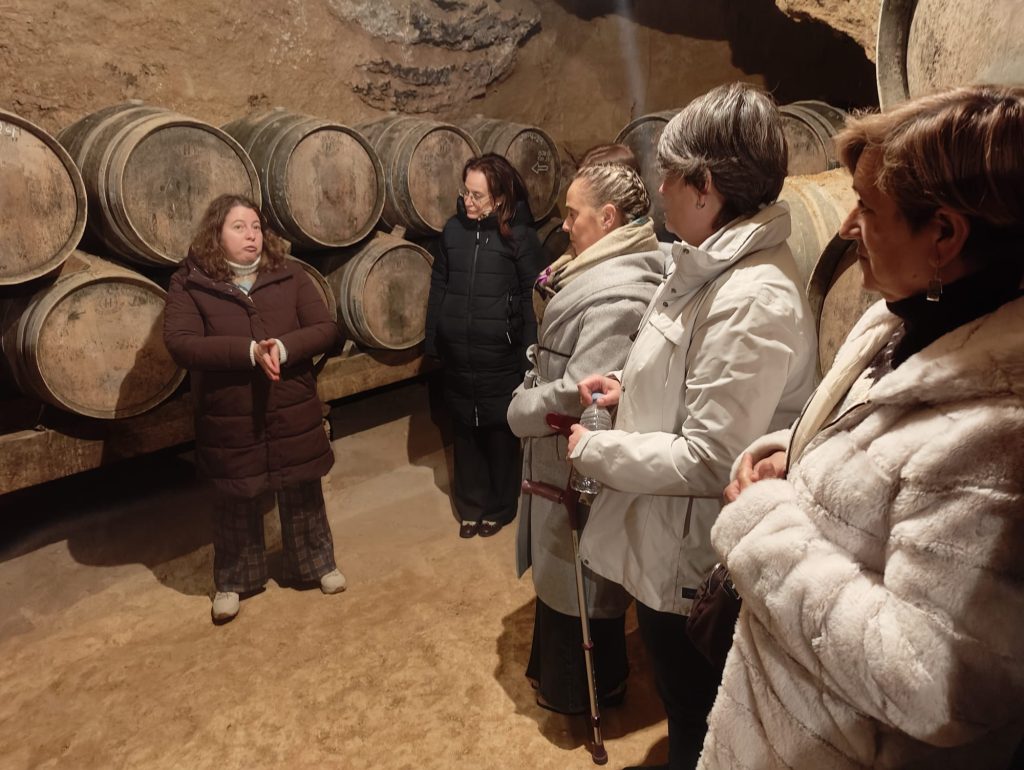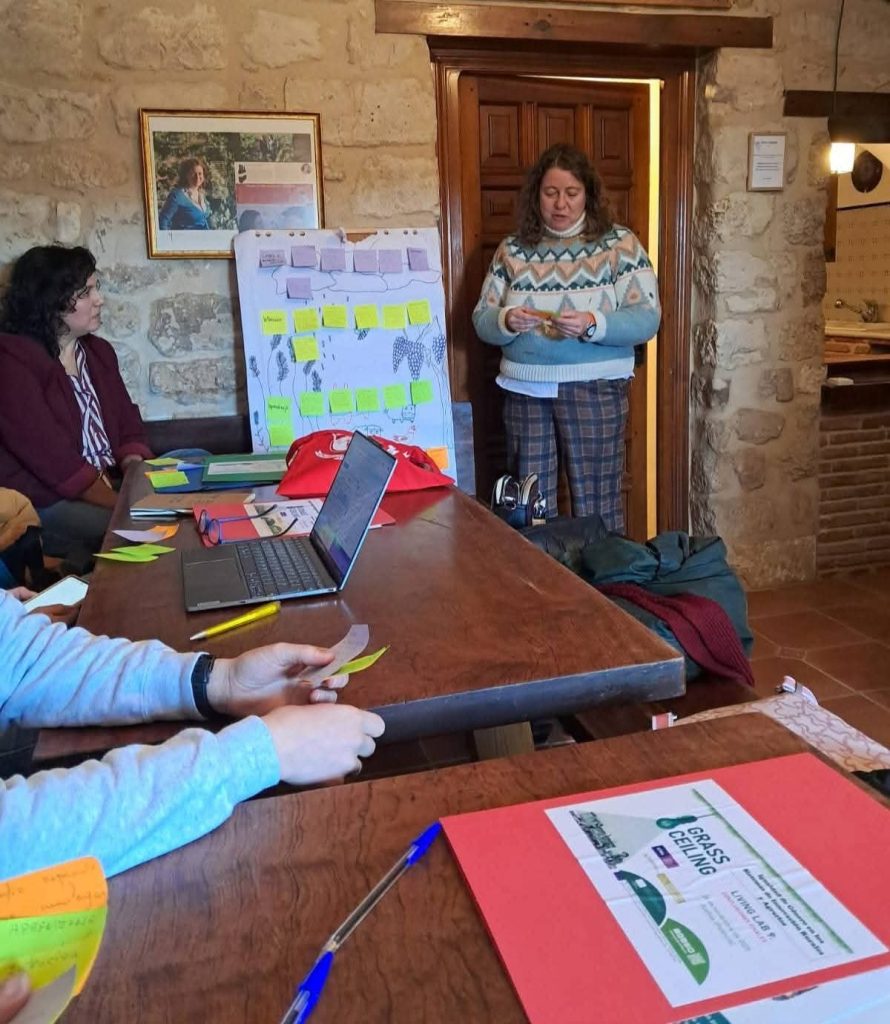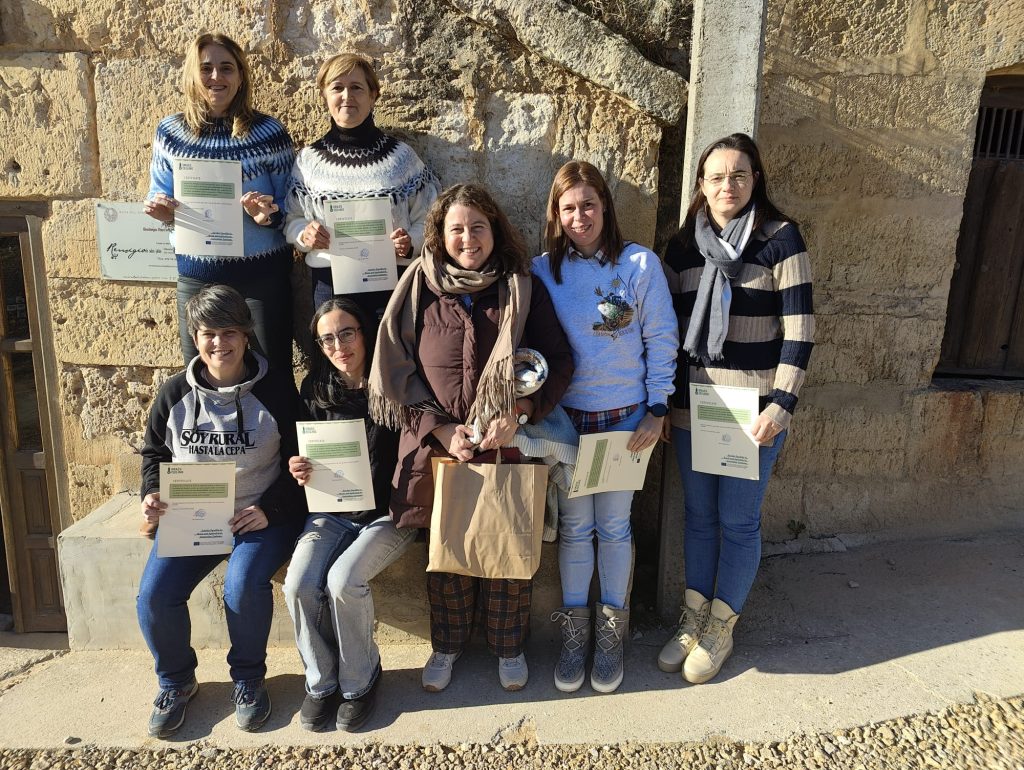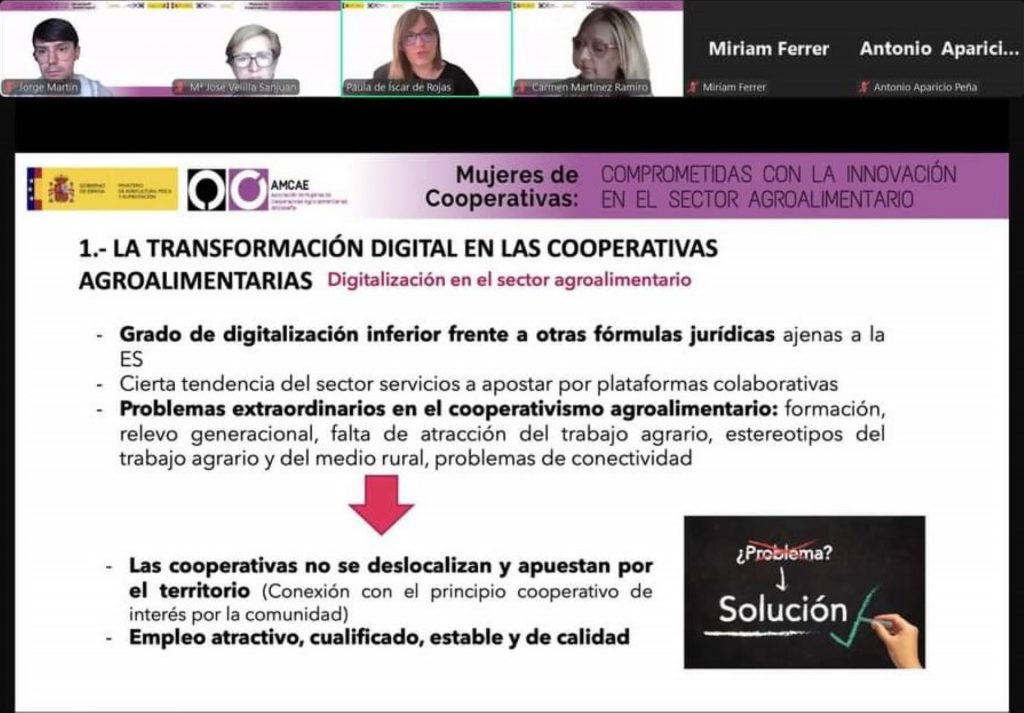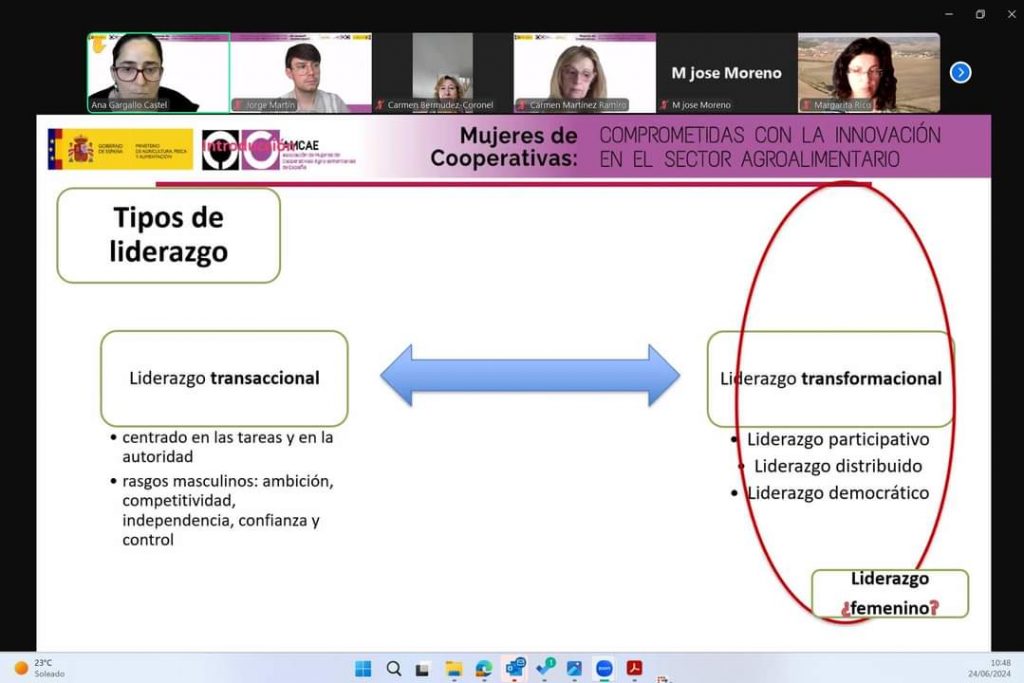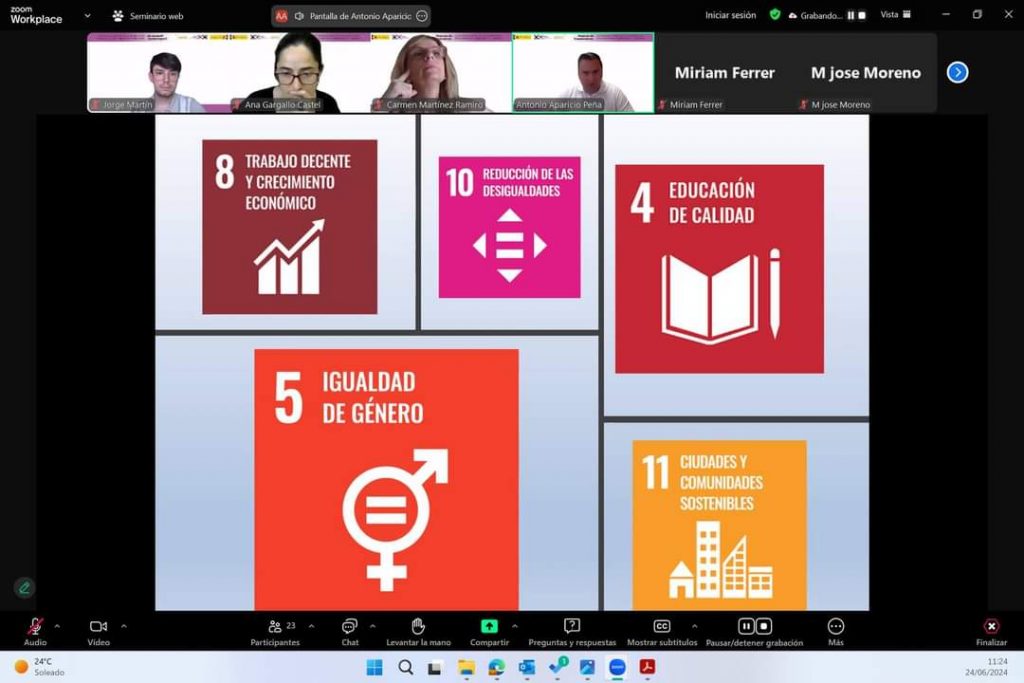- The UN theme for this year’s International Day of Rural Women is “Financing for rural women’s empowerment”.
- 15 October recognises the work of rural women in the food systems of the world, and claims rural areas with equal opportunities for all.
The International Day of Rural Women is an opportunity to celebrate women and girls who play a key role in rural areas, developing innovations in response to socio-ecological challenges and strengthening the resilience of rural areas.
According to the Committee on World Food Security (CFS, 2023), the lack of financial capital and financial inclusion are significant constraints to women’s entrepreneurial activities and engagement all along the food system and value chains, from investment in land to agrifood businesses. Structural constraints to women’s access to financial services such as credit and insurance are often based on restricted access to assets, including land and property, that could be used as collateral for loans; family indebtedness; limited knowledge and training of financial services; restricted availability of appropriate loan products for women led micro, small, medium businesses and smallholders; statutory and customary laws that are discriminatory and/or do not respond adequately to women’s needs and priorities; and negative social norms that prevent women from developing and growing their enterprises and productivity. At the same time, fair and equitable access to financial services is a prerequisite for overall societal economic security and prosperity.
While women often lead on socio-ecological transitions and progressive farming methods, they often face significant discrimination when it comes to land ownership, equal pay, participation in decision-making entities, and access to resources, credit and markets. GRASS CEILING is working with women socio-ecological innovators across nine European countries and facilitating interactions with bank managers, agricultural advisers and entrepreneurial experts, and on the occasion of this International Day the project would like to showcase the women in the Living Labs who are breaking new ground, developing innovations and co-learning through mutual support. They are sowing the seeds for future generations of women to lead rural development and agriculture innovations by sharing their stories on how they have overcome challenges accessing financial services:
Birgit Boljun, owner of Val Madorso olive farm in Istria (Croatia) decided to continue the family tradition of olive oil production and was faced with several challenges when trying to raise the necessary funds. Since the bank could not support her, and she did not have sufficient resources for investment, Birgit looked for other funding opportunities and finally decided to apply for an EU project. Based on her experience, she recommends setting multi-year goals, planning well in advance, making adjustments to be eligible to obtain EU funding, as it usually takes a long time to fulfil the tender conditions, reviewing past year’s tenders to see what is generally needed, continuing the basic work to avoid being left without income until the obstacles are overcome, and not being disappointed when things take longer and don’t go according to plan. According to Birgit, it is important to have a vision and be realistic about physical and financial possibilities and set a series of smaller attainable goals.
Letizia Cuonzo took over the family business Azienda Agricola Cuonzo in Puglia (Italy) and used subsidised finance and bank credit tools to expand and transform the company. The major challenges she faced were related to the lengthy bureaucratic procedures, but she was lucky to count on the support of the bank; in her experience, many institutional entities, even at the regional level, now support women’s entrepreneurship and startups, but nonetheless she recommends trying to secure funds by networking with other businesses and building synergies with competent people and entities who can guide entrepreneurs towards the best solutions. The success criteria for addressing and overcoming the main barriers in accessing financial instruments are, in her opinion: developing financial skills and literacy and being able to engage competent people who can provide advice in fields where their specific skills are needed.
Annalisa Pellegrini decided in 2020 to recover an unused family plot and grow lavender to produce essential oils. Her company, Lavanda Ruvo di Puglia, is also based in Puglia (Italy) and focuses on environmental sustainability and circular economy. In her experience, having had access to technical information on production earlier and more easily would have helped her to optimise the timing of the project. As she didn’t meet the age requirements, Annalisa was not able to use most public funds, and thus suggests exploring these options, especially if own initial capital is not available. For her, having a good business plan helps, as well as support from professionals, who know how to navigate public funding programmes. In her opinion, the fundamental criterion for securing economic resources should be the ethicality of the project, its commitment to the environment, respect for biodiversity, and reliability.
Daiva Šinkevičienė has been running the organic blueberry farm Karališka uoga in Lithuania for the past 10 years. She cultivates 14 varieties of royal berries on a four-hectare plot. Over this time span, Daiva has received 15,000 euro support under a single measure of the CAP. Access to the support is still complicated as the farm is small and it is hard to meet the eligibility criteria for the support measures. The major source of the investments and, hence farm growth, is her own investment. Each year, Daiva allocates 40 % of her income for investments. She considers financial planning, budgeting, and saving as the core elements in achieving the goals of the activities. She provides an example of preventing birds from picking at the harvest, where acquiring a drone appeared to be a viable solution.
Sonja van Uden is the founder of the Landdrift Foundation in the Netherlands and has used her experience as an entrepreneur and manager in various industries and countries to develop a concept for multifunctional land use that promotes biodiversity. In her opinion, it is challenging to access any form of financial services when the innovation does not fit the standard model of economic value creation, which is the case for the multifunctional land use concept of Landdrift. She talks of the difficulty in obtaining funds and raising interest among potential investors in Landdrift, especially when it involves explaining that there is no economic return on investment within the Landdrift concept. She shows inspiring examples of combined land use in other parts of the world and how these projects have created much value for the natural environment and the people in these areas. Sonja suggests refraining from allowing dreams or visions for a better future to be diluted by the difficulties faced regarding access to financial services, and keep searching for the needles in the haystack! When encountering a challenge, she always tries to think out of the box to find a solution and adapt to the situation. A success criterion for Sonja is to stay flexible and open throughout the entrepreneurship journey.
Torunn Hernes Bjerkem owns Bjerkem Farm, an organic farm in Norway growing ancient heirloom grains, making healthy food, healthy soils, healthy plants, and healthy environments. The biggest challenge is that the farm is organised as a sole proprietorship. Because of the old Norwegian property law, where the oldest child in the family inherits the farm (called ‘odel’), any investment in a big project is dependent on the individual; the sole proprietor. For that reason she doesn’t have access to the big funds in agriculture and farming. According to the sole proprietorship system, people wishing to expand their business have to put their farm on the line for bigger loans and investments, which makes them very vulnerable, so Torunn opted for organising the farm into a Limited Liability Company. She considers that people who create jobs in rural areas shouldn’t have to take the risk all by themselves: They ought to be supported by a network where they can find solutions together. This is the case of Øyna Kulturlandskapshotell, a sustainable hotel wedged into nature overlooking the ocean, serving local food and beverages, a project in which owners have partnered with other collaborators so that they can take care of the natural resources, create jobs and livelihoods, and build a dream together.
Marta Llorente manages a family-owned intensive pig farm located in Zazuar (Burgos, Spain), in an integrated system with over 60 hectares of crop land and 20 hectares of vineyards. One of the issues she considers most relevant when embarking upon innovative projects within the livestock sector are the high costs that must be assumed. In her case, she did not have problems obtaining a loan from the bank, but points out the need for a prior analysis of profitability. There are public financial tools, such as subsidised interest loans, but on many occasions these require complying with numerous conditions and bureaucratic procedures, making it challenging to benefit from them. Her recommendation to women looking to make an investment to improve their farm is to conduct an analysis of the expenses and income that the improvement will entail in advance, to assess its profitability. Detailed administrative and financial management of the agricultural enterprise, as with any other business, is essential. The advice of consultants in this field is crucial to assist in making economic and financial decisions.
Further reading
CFS (2023). Voluntary Guidelines on Gender Equality and Women’s and Girls’ Empowerment in the Context of Food Security and Nutrition, agreed by the Open-Ended Working Group (OEWG) on Gender Equality and Women’s and Girls’ Empowerment.
FAO (2019). Women’s access to rural finance: challenges and opportunities. Rome. Licence: CC BY-NC-SA 3.0 IGO.
